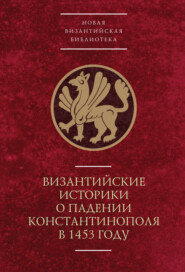По всем вопросам обращайтесь на: info@litportal.ru
(©) 2003-2024.
✖
Tales from the German, Comprising specimens from the most celebrated authors
Настройки чтения
Размер шрифта
Высота строк
Поля
Kohlhaas, turning to the castellan in the greatest astonishment, asked him if he knew the wonderful woman who had given him the note.
The castellan began to answer: "Kohlhaas, the woman – " but he stopped short in the middle of his speech; and Kohlhaas, being carried along by the train, which proceeded at this moment, could not hear what the man, who seemed to tremble in every limb, was saying to him. When he came to the place of execution, he found the Elector of Brandenburg on horseback there, with his train, among whom was the Chancellor Heinrich von Geusau, in the midst of an immense concourse of people. To the right of the elector stood the imperial advocate, Franz Müller, with a copy of the sentence in his hand, while on his left, with the decree of the Dresden Court chamber, was his own advocate, the jurist Anton Zäuner. In the midst of the half-open circle formed by the people, was a herald with a bundle of things and the two horses, now sleek and in good condition, beating the ground with their hoofs. For the Chancellor Henry had carried every point of the suit, which, in the name of his master, he had commenced at Dresden against Squire Wenzel von Tronka; and consequently the horses, after they had been restored to honour by the ceremony of waving a flag over their heads, had been taken out of the hands of the flayer, and, having been fattened by the squire's men, had been handed over to the advocate in the Dresden market, in the presence of a commission appointed for the purpose. Therefore, the elector, when Kohlhaas, attended by the guard, ascended the court to him, said: "Now, Kohlhaas, this is the day on which you have justice. Here I give you back all which you were forced to lose at the Tronkenburg, your horses, handkerchief, money, linen, and the expenses for medical attendance on your man, Herse, who fell at Mühlberg. Are you content with me?"
Kohlhaas, while with open, sparkling eyes, he read over the decree which was put into his hands, at a hint from the chancellor, put down the two children whom he carried, and when he found in it an article, by which Squire Wenzel was condemned to be imprisoned for two years, quite overcome by his feelings, he threw himself down before the elector, with his hands crossed on his breast. Joyfully assuring the chancellor, as he arose, and laid his hand on his bosom, that his highest wish on earth was fulfilled, he went up to the horses, examined them, and patted their fat necks, cheerfully telling the chancellor, as he returned to him, that he made a present of them to his two sons, Henry and Leopold.
The chancellor, Henry von Geusau, bending down to him from his horse with a friendly aspect, promised him in the name of the elector, that his last bequest should be held sacred, and requested him to dispose of the other things in the bundle according to his pleasure. Upon this Kohlhaas called out of the mob Herse's old mother, whom he perceived in the square, and giving her the things, said, "Here, mother, this belongs to you," adding, at the same time, the sum which was in the bundle, to pay damages, as a comfort for her old days.
The elector then cried, "Now, Kohlhaas, the horse-dealer, thou to whom satisfaction has been thus accorded, prepare to give satisfaction thyself for the breach of the public peace."
Kohlhaas, taking off his hat, and throwing it down, said, that he was ready, and giving the children, after he had once more lifted them up and pressed them to his heart, to the farmer of Kohlhaasenbrück, he stepped up to the block, while the farmer, silently weeping, led the children from the place. He then took the handkerchief from his neck, and opened his doublet, when taking a cursory glance at the circle of people, he perceived at a short distance from himself, between two knights, who nearly concealed him, the well-known man with the blue and white plumes. Kohlhaas, bringing himself close to him by a sudden step, which astonished the surrounding guard, took the case from his breast. Taking the paper out, he opened it, read it, and fixing his eye on the man with the plume, who began to entertain hopes, put it into his mouth and swallowed it. At this sight, the man with the blue and white feathers fell down in convulsions. Kohlhaas, while the man's astonished attendants stooped down and raised him from the ground, turned to the scaffold, where his head fell beneath the axe of the executioner. Thus ends the history of Kohlhaas.
The corpse was put into a coffin, amid the general lamentations of the people. While the bearers were raising it to bury it decently in the suburban church-yard, the elector called to him the sons of the deceased, and dubbed them knights, declaring to the chancellor, that they should be brought up in his school of pages. The Elector of Saxony, wounded in mind and body, soon returned to Dresden, and the rest concerning him must be sought in his history. As for Kohlhaas, some of his descendants, brave, joyous people, were living in Mecklenburg in the last century.
THE KLAUSENBURG
BY LUDWIG TIECK
[The following Gespenster-Geschichte, or Ghost Story, as Tieck himself has called it, is related to a circle of friends by a gentleman, Baron Blamberg, who was a friend of the unfortunate subject of the story. The ruins of the Klausenburg are, according to the words of the narrator, near the house where they are assembled. The story is often interrupted by the company, but their conversation has no connection with it, and has therefore been omitted. – C. A. F.]
It is about fifty years since that a rich family lived among the mountains a short distance off, in a castle, of which only the ruins are now to be seen, since it was partly destroyed by thunder and lightning, and the remainder was demolished in war. It is now only occasionally visited by huntsmen and travellers who have lost their way, and it is called the ruins of the Klausenburg. Proceeding up the solitary footpath through the pine wood, and then climbing the pathless crag, you stand facing its entrance, which is cut out of the living rock and secured by an ancient and strongly barred gate. On the outside is an iron rod with a handle apparently communicating with a bell on the inside. Having once wandered there while hunting, I pulled this handle, but received no answer to my summons from within. As this spot can only be approached with much difficulty, and it is almost impossible to climb the chasms and rocks on the other side, there are many legends and tales current among the vulgar about this singular Klausenburg the remains of which present an almost spectral appearance.
Among other stories, it is reported that more than a century ago, there resided within its walls a very wealthy, benevolent, and industrious man, who was much beloved by his friends and tenants. He had early in life retired from the state service to devote himself to the management of his estates, of which he possessed many, including mines, and glass and iron foundries which he was able to work to great advantage, having abundant fuel from his extensive forests. Although beloved by his tenants, he was yet hated and envied by many of his equals, the more reasonable of whom disliked him because he avoided them, and they readily perceived that he despised them for their want of industry; while the more foolish believed, and even openly declared, that Count Moritz was in league with Satan, and was therefore successful beyond expectation in all he undertook.
However absurd the report, it was calculated at this early period to injure the character of this persevering man; as it was not many years after the time when people were burnt at the stake for witchcraft and for being in league with the evil one. Hence it was that the count in disgust retired from the world to the solitary castle of Klausenburg, and was only happy when conversing on his affairs with intelligent miners, machine makers, and learned men. Knowing the distrust with which he was looked upon by the old priests who held the livings in his different parishes, he but rarely appeared at church, a circumstance which but little contributed to raise his reputation in the neighbourhood.
It happened once that a band of gipsies, who at that time roved about in Germany with little molestation, came to these parts. The nobles of the country as well as the government were undecided and dilatory in checking this nuisance, and the boundaries of several states meeting here, the tribe could carry on their depredations with impunity and even unnoticed. Where they did not receive any thing, they robbed; where they were resisted they came at night and burnt the barns; and in this manner the fire on one occasion rapidly spreading, two villages were burnt to the ground. Count Moritz was induced by this circumstance to unite with some resolute neighbours, and to pursue and punish, on his own authority, the lawless tribe. Imprisonment, scourging, flogging, and starvation, were awarded by him without reference to any authority, and only some who were convicted of arson were sent to the town for what was called the gipsy trial, and were then legally condemned to suffer capital punishment.
The count considering himself the benefactor of his country, could not help feeling mortified when his enviers and calumniators used this very circumstance to accuse him of the blackest crimes, and the most atrocious injustice. To this ingratitude he opposed nothing but calm indignation, and a contempt which was perhaps too magnanimous; for if a nobleman always preserves silence, calumny and falsehood will be more readily believed by the foolish and those who have no character to lose. If he could not prevail on himself to meet his opponents and to relate the circumstance in detail, he felt himself quite disarmed on discovering how much he was misunderstood in his family, and by the being who was nearest to his heart. He had married late in life, and his wife having a few days before presented him with a son, was still confined to her room. In her present weak state he could not dispute or urge with any force the justice of his proceedings, when she reproached him with the cruelty he had exercised towards these poor innocent men, who rather deserved his compassion than such hard persecution. When on leaving her chamber some old cousins told him the same thing in plainer terms, he could no longer suppress his rage, and his replies were so wrathful, his curses so vehement, the gestures of the irritated man so superhuman, that the old prattling women lost their composure and almost swooned. To prevent his sick wife from learning all this, he immediately sent them by main force to another of his estates and then rode to a solitary part of the mountains, partly to divert his thoughts and strengthen himself by the sublime aspect of nature, and partly to resume the pursuit of the gipsies. But what was his astonishment when he learned from his ranger that those noblemen who, in conjunction with him, had undertaken the war against these vagabonds had dispersed and retired to their seats without giving him notice!
Without being disconcerted at this, he again succeeded in apprehending some of them who were guilty of heavy crimes, and ordered them to be bound and thrown into a secure dungeon. When after having dismissed his attendants, he rode thoughtfully back alone towards the Klausenburg, the aged castellan on his arriving at the gate gave him a packet which had been sent by the government. This he opened with anticipating vexation, and was so surprised by its contents that his anger rose, and he became infuriated almost to madness. The purport of the letters it contained was no less than a penal accusation for murder and high treason in consequence of the count's having, on his own authority, and as leader of an armed troop, seditiously opposed the government. Almost senseless, he dropped these preposterous letters, and then, recovering by a sudden effort, went to his apartment to read the impeachment more calmly, and to consider how he could defend himself. Passing the countess's chamber and hearing strange voices within, he hastily opened the door, and beheld – what he certainly did not expect, two dirty old gipsies dressed in rags, sitting by the bedside of the invalid, and foretelling her fate, while they frightfully distorted their hideous countenances. As might be expected, the countess was horror-struck at beholding her husband enter, for what he now did was truly barbarous. In his fury he scarcely knew what he did, and seizing the old prophetesses by their long gray hair, he dragged them out of the room and threw them down the staircase. He then commanded the servants, who came crowding round, to secure them to a stone pillar in the yard, to bare their backs, and chastise them with whips, as long as the strength of the ministers of his cruelty would hold out. His orders were executed.
Having locked himself in his room, he was horrified, on becoming calmer, as he reflected on the barbarities he had committed. From these thoughts he was aroused by a loud knocking at the door. He opened it, and a servant in evident terror entered, saying, "Oh! gracious count, I was afraid you were ill, or perhaps dead, for I have been knocking for a long time, without receiving any answer from your lordship." "What do you want?" "The eldest of these hideous witches," replied the servant, "insists on speaking to you for a minute before she leaves the castle. She will not be refused, and the most severe threats and curses avail nothing with the old woman." The count ordered the ill-used woman to be led to his room. The appearance of the poor creature was frightful, and the count himself started back with horror, when she presented herself covered with blood, her face and arms lacerated, and a deep wound in her head, which was still uncovered. "I thank you," she said, "kind brother, for the Christian kindness that you have shown me in your palace. You are, indeed, a virtuous man, a persecutor of vice, an impartial judge, and a punisher of crimes; and I suppose you would call yourself an avenging angel in the service of your God. Do you know then, tender-hearted man, why we were sitting by the bedside of your wife? We had, indeed, told her fortune, but the real object of our visit was to speak to you, and you were not in your hospitable house. It was our wish to separate from the gang, and seek a humble and honest living. We know the haunt where the leader conceals himself, that notorious incendiary whom you have so long sought in vain, and intended to deliver him into your hands; but you are worse than the most atrocious of our gang, and as you have shown us to-day so much kindness, a curse for it shall light upon you, your family, and your offspring, to the third and fourth generation."
The count, who had now repented of his hasty wrath, wished to appease the awful woman, by speaking kindly to her, and offering her, by way of reconciliation, his purse well filled with gold. She cast an evil, though covetous look at the gold, and, grinding her teeth, threw the purse at the count's feet. "That mammon," she cried, "would have made me and my poor sister happy, but after the meal you have given us, I would rather gnaw the bark of trees than receive the wealth from your accursed hands." Various and many were the curses she continued heaping on him, and the torments and misfortunes she denounced against him and his house. When she had finished, she tottered down the stone staircase, all the servants fleeing from her as from a spectre.
From this moment the count was a changed man. His energies were crushed. He lived as in a dream, having no wish, and being incapable of forming a single resolution. Those around him could not learn whether he was deeply shocked by the death of his consort, who died the night after that fatal day. Since that time he was scarcely ever heard to speak or to utter a sound, sigh, or complaint. He no longer concerned himself about any thing, and seemed perfectly indifferent when the government confiscated his largest estate to punish him as a rebel and violator of the laws. In his present state of mind, he abandoned himself to the guidance of those very priests whom previously he had so pointedly avoided; he frequented the church often, and was fervent in his devotions. He never looked round when people behind him called out, "There sneaks the old sinner, the traitor, the murderer, and rebel, back again into God's house." Now, likewise, some relatives profited by his listlessness so far as to deprive him by a lawsuit of another large estate, and there was every appearance that of all the large possessions of his ancestors, nothing would be left, for his only heir, a beautiful boy, had not a prudent guardian of the child done all in his power for him. From the unconcern of his father, the young count became daily more impoverished, leaving to his offspring but a small portion of the large property to which he had succeeded; but, notwithstanding these misfortunes, and also the breaking out of war, the next proprietor of the Klausenburg, and his family, maintained their rank, and were respected in the neighbourhood. By his industry, his success, and his marriage with a wealthy lady, he partly retrieved his fortune, and succeeded in his endeavours to revive and maintain the former splendour of his castle for some fifty or sixty years, so that his friends and relatives resorted to it as formerly, with delight, and he, at his death, left to his only son his remaining estates in good condition, besides large sums of money. Thus the curse of the gipsies appeared totally removed, the count and his son having completely forgotten former events, or, having, perhaps, never heard of the curse.
I was a spirited boy when I made the acquaintance of Francis, the last heir of the Klausenburg. This Francis, who was about a year my senior, was cheerful, amiable, and handsome, and the pride of his father, the persevering man who had partly restored the splendour of his ancestors. My playmate grew up to be, not merely the delight of his father, but of all around. He was manly, witty, and engaging, an accomplished dancer, and expert horseman, and in fencing, had not his equal. After being presented at court, he soon gained the prince's favour, by his natural vivacity, and in a few years was raised to the office of counsellor. Few men on earth had fairer prospects of a happy life. All mothers and aunts in the neighbourhood saw, and hoped to find in him, the future husband of their daughters and nieces, and at the assemblies in the capital he was the adored and chosen hero of the ladies, as he was the object of envy and persecution among the young fashionables. No one could conceive why he so long deferred his choice, and, for a long time, people would not credit the rumours that were circulated, that he had formed an engagement with the young princess. It was confidently whispered that the lovers waited only for some favourable chance, or occurrence, to acknowledge publicly their mutual affection and wishes. However, nothing of the kind happened, and years passed, and with them faded the rumours, and various interpretations of sage politicians.
Suddenly, when the affair seemed forgotten, my youthful friend was banished the court and capital in disgrace. All his former friends forsook him, and what was still worse, an intrigue countenanced by the government, involved him in a dangerous lawsuit, which threatened the loss of his fortune. Thus then this courted, admired, and universally caressed Francis, saw himself in the very worst position, and was obliged to confess that his career was closed, and that all his splendid prospects were darkened for ever.
About this time I saw him again; he bore his misfortune manfully. He was still as youthful and handsome as ever, and the serenity of his temper had suffered but little. We were travelling in this neighbourhood, and the Klausenburg having gone to ruin, he built a pleasant house not far distant, on the slope of a hill, from whence he enjoyed a beautiful prospect.
He avoided speaking of former circumstances, but one evening, he was deeply affected by a letter announcing the decease of the young princess, who had died of a broken heart, or, as was afterwards said, had voluntarily sought death, because she could no longer bear the burden of her embittered life.
It was evident to me that a deep-seated melancholy had taken possession of my friend, and often showed itself; his mind, however, was not so affected as to display any symptoms of weariness of life, which made me hope that his misfortune and the evil fate that had attended him, would serve to purify his character, and give him that genuine deportment which is essential even to those who are not tried by calamity, and much more to those who have to pass through heavy trials.
There lived in the neighbourhood about that time a wild old woman who was half crazy, and who went begging from village to village.
The higher class called her jokingly, the Sibyl, the common people did not hesitate to call her a witch. The place of her residence was not exactly known; probably she had no certain place of resort, as she was constantly seen on the high-roads, and roaming in every direction in the country. Some old rangers maintained that she was a descendant of that notorious gang of gipsies whom Count Moritz many years before had persecuted and dispersed.
Walking one day in a beautiful beech-wood, and engaged in conversation which made us forget the world without, we suddenly saw, at a turn of the footpath, the old hideous Sibyl before us. Being both in a cheerful mood, we were rather astonished, but in no way startled. Having dismissed the impudent beggar by giving her some money, she hastily returned, saying: "Will not you have your fortunes told for what you have given to me?"
"If it is something good that you can tell me, you may earn a few more pence."
I held out to her my hand at which she looked at very carefully, and then said, scornfully: "My good sir, you have a miserable hand which would puzzle even the best fortune-teller. Such a middling person, neither one thing nor the other, as you, I have never seen in all my life; you are neither wise nor stupid, neither bad nor good, neither fortunate nor unfortunate; without passions, mind, virtue, or vice; you are what I call a real A.B.C. scholar of Heaven's blockheads, and you will not in all your life have the slight merit of ever perceiving your own insignificance. From your paltry hand and unmeaning countenance nothing at all can be prophesied; a dry fungus, without it is first prepared and macerated, cannot even receive a spark. Therefore, Jack Mean-nothing, your dull nature will never live to see any thing worth telling."
My friend Francis did not laugh at the old woman's opinion and description of my character, but being attached to me, his anger arose, and he reproved her in strong terms. She listened very calmly to what he said, and then replied: "Why are you so angry? If you will not give me something more for my trouble and wisdom, let me go quietly. No doubt men do not like to have their inner-most heart exposed to the daylight. Is it my fault that there is nothing better in your friend's character? He is neither my son nor disciple." Thus the prophetess meant to justify and atone for her insolence by repeating it anew. My friend was pacified, and gave her a ducat, saying: "Make merry with that, – where do you live?"
"Where do I live?" she replied; "my roof changes so often that I cannot tell or describe it to you; not unfrequently it is open, and my companion is the howling storm; where men have not built houses they usually call it nature. But I thank you, and must requite your kindness." Quickly and forcibly taking the unwilling hand of my friend, she held it firmly between her bony fingers and considered it for some time; then letting the arm drop, with a sigh, she said in a tone of voice expressive of deep sorrow, "Son, son; you descend from wicked blood, are an evil scion of evil ancestors; but fortunately you are the last of your race, for your children would be more evil still. What begins in evil must end in evil. Ah! ah! your physiognomy; your expression; your whole countenance; I feel almost as if I saw a murderer before me. Yes! yes! – you have killed a young, beautiful, and noble maiden. On her dying bed she long struggled with grief and anguish. O ye wicked men, can you not be faithful and keep your oaths. It is not only daggers, swords, and guns, that cut and kill; looks and sweet words will also do it. Oh, those seductive words, and all that pretended affection! Now this splendid frame that first dazzled your foolish eye, breaks, and is consigned to corruption. Beauty! oh thou fatal gift of Heaven! and besides, murderer, you are handsome enough to kill others. The curses of your father follow you now whether you dwell in the forest or in your finely tapestried rooms. See you not, feel you not, how, coming from the very heart, they waft misfortune and misery towards you as the stormy wind scatters the dry leaves in the valleys between the mountains? Where is your peace, your happiness, your confidence? All scattered like the drifting sand in the barren plain; no fruit can there strike root."
Suddenly the crazy woman shouted aloud and ran shrieking and yelling discordantly into the thickest part of the wood. When I looked round I was terrified on seeing my friend become pale as death. He shook so violently that he could not support himself, but sank on a hillock beside him. I sat down by him and endeavoured to comfort and quiet him.
"Is this madwoman," he exclaimed; "inspired by truth? does she really see the past and the future, or are those only mad sounds which she utters in brutish thoughtlessness, and if it be so, have not such random words been perhaps the genuine oracles in all ages?"
He now gave way to tears and loud lamentations; he called loudly in the air, what hitherto he had so carefully and mysteriously locked up in his heart.
"Yes!" he exclaimed; "accursed be every talent, speech, grace, and all the gifts with which a malicious fate endowed us to ruin ourselves and others! Could I not have avoided her first kind look? Why did I suffer myself to be infatuated, to exchange glance for glance, and then word for word? Yes! she was lovely, noble, and graceful; but in my heart there arose together with better feelings, the vanity that even she, the most exalted, distinguished me. I approached her nearer, more boldly, more decidedly, and my pure exalted sentiments surprised and won her. She gave me her confidence. Her heart was so virtuous, so noble; all her youthful feelings were so tender and fervent; it was a paradise that opened to our view. Childishly enough, we thought that no higher happiness on earth could be offered us, the present heavenly moment sufficed. But now passion awoke in my heart. This she expected not, she was terrified and withdrew. This goaded my self-love, I felt unhappy, crushed, and ill. Her compassion was moved, and she no longer avoided me. By means of an attendant in our confidence, we were able to meet without witnesses. Our intercourse became more tender, our love more defined and ardent; but as these feelings were embodied in language, and expressed more definitely, the paradisiacal breath, the heavenly bloom was fled for ever. It was happiness, but changed in character; it was more earthly, more kindly, more confiding, but was not surrounded by that magic which had transported me formerly, so that I could frequently ask myself when alone, 'are you really happy?' Alas! my friend, as we saw each other so often, how many foolish and mad projects were then conceived!
"We talked, we conversed of the future of which those who ardently love never think in the early period of their ecstacies. Once an opportunity of an alliance likely to add to the lustre of her house presented itself. What fury and bitter rancour were aroused in me! For only appearing favourably disposed towards this illustrious alliance, she suffered much from my anger. My passion was ignoble, as she deeply felt, more from her love to me, than from the sufferings it caused her. Oh! she was never able to erase from her soul this picture of my madness. To alleviate my sufferings and completely to reconcile me, she stooped to my mean and rude nature. Our hearts harmonised again, but from the lowering clouds that now surrounded me, I looked back with yearnings to that heavenly serenity that first shone dazzlingly upon me so. In imagination we lived as though affianced, and dreamt of our union, of unexpected bliss, of varied pleasures and turns of fate never to be realised. But these were misty visions, and we considered the greatest improbabilities as near and natural. The habitual thoughts of our love gradually destroyed necessary precaution. The looks of spies were watchful, and were sharpened by our imprudence. Rumours were circulated, which perhaps never would have reached the prince himself, had not his own glance suspected and discovered our connection. He now learnt more from his questions than he desired to know, and far more than was in accordance with truth. One evening he sent for me to attend him alone in his closet, and displayed to me in this serious interview all the nobleness of his great mind. Without reproaching me, he ascribed to himself alone the immediate cause of my presumption, saying that he had treated me with too much confidence, nay, almost like a son; that he had deviated too much from his rank and the laws of etiquette; that he had foolishly rejoiced in the thought of his daughter being able by intercourse with me to improve her mind. As he became more serious, I assured the agitated father by my honour, and by all that is sacred, – which indeed was in accordance with the truth, – that our mutual passion had never led us astray, and that our better genius had never forsaken us. At this he became tranquil, and only replied by prohibiting as I had anticipated. I was not allowed to meet his daughter again privately. I was to endeavour by degrees to heal the wounds which our separation caused, to eradicate the affection, which I had so rashly kindled, by my good sense and demeanour, and thereby to make myself worthy to regain the confidence and love of the prince.
"Suddenly I felt as if the veil had fallen from my eyes," continued Francis, "indeed, I may say, that by this interview, I was quite a changed being. Truth and reality had now, at length, with victorious power, asserted their ascendancy over me. Many periods of life may be compared to a vivid fantastic dream; we awake to sober consciousness, but still feel the reality of the vision.
"But, ah! my friend, this truth created a hell within me. My mind yielded to the noble father in every thing. He was right in the fullest sense of the word. If I admired Juliet, and recognised her worth, if she was my friend, and I sufficiently important to elevate her mind, what had that to do with our passion and my efforts to possess her? With this conviction I was now penetrated, and the feeling exerted a benign influence over me. But how different were her feelings! When such changes occur, women usually suffer from the consuming fire of passion. What letters did I receive from her, when I had communicated to her my resolution and the advice that we must submit to necessity! I almost repeated the words which I had heard from her beautiful lips when I urged my ardent attachment. She now listened in a spirit different from that which harassed her formerly; deaf to all advice, unsusceptible to every kindness, inaccessible to conviction, she only listened to the wild suggestions of her ardent affection. My reason seemed to her cowardice, my resignation baseness. She alone was exclusively to be considered in the question that agitated my heart. In short, she now played the same part that I had done formerly. Looking back upon my former conduct with repentance and shame, I hoped I should be able, by calm perseverance, to bring her gradually to the same conviction. But she frustrated my hopes. It was singular that I was made unhappy by possessing, in the fullest measure, what I had formerly considered my supreme felicity; and that my most fervent desire extended no further than to be able to restore her to tranquillity, nay, even to produce coldness and indifference.
"So whimsical are the gods frequently towards us in the bestowal of their gifts.
"My letters grieved her deeper and deeper, as she showed by her replies. Thence it was that I could not but wish myself once more able to obtain a tête-à-tête with her in some evening hour, such as I had formerly enjoyed over and over again. By bribery, entreaty, and humiliation, I succeeded.
"But, oh, Heavens! how different was this Juliet from her who once had so enraptured and inspired me. With her grief, her mortified feelings and her offended pride she resembled a raving Bacchante. On approaching her, I said to myself: 'To this state then has my love, vanity, and eloquence, reduced her! Oh! ye men, who, by your power, are able to elevate these tender beings to angels, or change them to wild furies!' But these reflections came too late. If her letters were violent, her words were raging. Nothing in the whole world she desired, except my love. She cared for nothing; every thing seemed right and desirable, – flight into the open world, sacrifice of station, mortification of her father and family. I was terrified at this distraction, that seemed to fear and dread nothing. The more persuasive my manner, and the more desirous I was to convince her of the unavoidable necessity of submitting, the more furious in words and gestures she became. She would fly with me immediately. I felt it required nothing more than to express the wish, and she would have surrendered herself, in this distraction, totally and unconditionally. I was wretched from my inmost heart, indeed, all my energies were annihilated.
"I learned that the prince had only spoken to her in hints; the truth was known to her only from our correspondence. She blamed me, her father, and fate, and only became calm after a flood of tears. I was obliged to promise to see her again in a few days in order to discuss the means of her flight. Thus my feelings were so changed that I feared this once adored Juliet, and, indeed, could not help despising her. And yet she was the same, and only the unhappy passion that I had infused from my heart into hers had rendered her thus infatuated, I trembled again to see her. I was at a loss what to say, what pretext for delay, or what excuses to invent. Thus some weeks passed, during which we only exchanged letters. To conclude, I saw her again. She seemed ill, but still in that excitement which would not listen to reason. She had provided a carriage, packed up her jewels, made the necessary preparations on the frontier, procured passports, and powerful protections in distant countries; in short she had done all that madness of an unbounded love could undertake. I treated her as an invalid who does not know her own state, humoured all her extravagances, and praised her most whimsical plans. Thus she thought we agreed, and in a week we were to fly during a masquerade while all were busied, and no one could be recognised. To satisfy her for the moment I agreed to every thing, but proposed in my own heart to quit the court and the town. While we were thus discussing our highly reasonable projects I suddenly perceived behind us the prince, who had been for sometime listening to our conversation. The scene which then took place I will not attempt to describe. The father's anger overstepped all bounds on finding me untrue to my promise, since he was convinced that I quite agreed to all the wild plans of his daughter. She cast herself at his feet totally unlike the beautiful being she was formerly, she resembled an automaton moved by powerful springs, a figure only manifesting life in convulsive gestures. It is astonishing that we ever outlive some moments. I was banished, obliged to fly into solitude, and for a long time heard nothing of the city or what occurred there, as I avoided all intercourse with men. When I in some measure recovered my tranquillity of mind, and was able to bear the sight of friends, I heard that she was suffering from an incurable disease, and that her life was despaired of by the physician. How whimsically does fate sport with man and all human intentions! I was informed that her father in the extremity of grief, would willingly have given me his beloved child had he been able thereby to save her; that he would have despised the opinion of the world, and the objections of his family, could he by these means have saved his Juliet, by whose illness he had first learnt how much he loved her, and how much his life was bound up in hers. All was in vain, – she died in agonies, calling for me, and the disconsolate father heaped execrations upon me that will overtake me, ay, – as surely as her own."
These are, as nearly as possible, the affecting confessions of my unhappy friend. He added, in conclusion, that the whole of his property would be lost, unless he discovered a certain document for which he had long been searching, but which he could find nowhere.
There are sufferings during which it is foolish to make even the attempt at offering consolation. Such sufferings must be lived through, they are peculiar to human nature, and he who is not overwhelmed by them but survives them, will afterwards see that to pass such a severe reprobation was essential to his happiness.
"I am convinced," said my friend a few days afterwards when I took leave of him, "that these execrations and the prophesies of the old fury will visit me. My life will be consumed in illness, misery, delirium, and poverty. The spirit of the departed will tread in my footsteps and sow poison, where, perhaps, some joy might otherwise have sprung."
I began to comfort him, calling to my aid, hope and consolation from every source, because such apprehensions are generally imaginary, and may be combated. Hope is at least more infinite than the all-engrossing sensation of such visionary fear. We separated, and for a long time I heard nothing of my friend Francis. I lived in foreign countries and returned some years after the period in question.
We had not kept up any correspondence. I was therefore surprised and delighted by his first letter which I received in my own comfortable home. There was no allusion to his former sufferings; all was forgotten. Time and fortune had transformed my friend into a truly new being. He wrote to me of his approaching marriage. The most beautiful girl of the country, young, cheerful, and innocent, had bestowed her affections upon him; and on the very day on which their vows were exchanged, he had, after years of fruitless search, discovered the important document which would complete their nuptial happiness. The melancholy time, he informed me, had vanished from his mind, his youth seemed renewed, and now only he began to live. In a week his marriage was to be celebrated, and he urged me to come and be a witness of his happiness.
It would have delighted me to have complied with his invitation, had not my uncle, who lived forty miles distant, and was then lying on his death-bed, called me from home. The prince, who bitterly hated and persecuted my friend, had died in the meanwhile, so that, in all human probability, there was the prospect that every thing ominous, menacing, and fatal, would fade away and be forgotten, and that spirits of fortune and delight would henceforth draw my friend's car of life.
My stay with my uncle, who was dying, was protracted. His sufferings lasted longer than his physicians had expected, and I was glad that my presence was so consoling and beneficial to him. After his death, I had various business to transact, to execute his will, to make arrangements with the remaining relatives, part of his fortune being left to me, and to settle all to our mutual satisfaction. As journeys were required for these matters, nearly eighteen months elapsed before they were completed. The journeys had carried me far from our neighbourhood, and I must confess that these circumstances, and the pressure of business, had almost caused me to forget my friend Francis. He had not written to me, nor had I heard any thing of him, and I was, therefore, convinced that it was well with him; that he was married and happy in his new condition. Being soon after near Switzerland, I made a tour to that country, and then visited a watering place on the Rhine, to which my medical adviser had long before recommended inc.
Here I abandoned myself to amusements, enjoyed the beauties of nature during my rambles, and felt happier than I had been for some time. Being one day at the table d'hôte, I accidentally looked over the list of visiters, and found that my friend Francis, with his wife, had been a week in the town. I wondered he had not found me out, as my name must have struck him in the list. However, I accounted for his not doing so, by saying to myself that he had not looked over the leaves attentively, that he had not heard my name mentioned, or that possibly he might be seriously ill and would see no company. Satisfied so far, I called upon him, and was told he was not at home. I hoped to meet him in my walks, but perceived him nowhere. Calling the following day, I received the same answer, that he had gone out. I left my card, requesting he would pay me a visit or tell me when he would receive me. I heard nothing from him. The next morning early, I called again, and the servant again replied, with a troubled countenance, that his master was already from home.

















